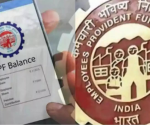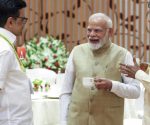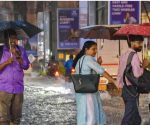From PM Modi’s message on Operation Sindoor to Opposition’s demands: What transpired at Niti Aayog meeting

Prime Minister Narendra Modi on Saturday chaired the 10th Governing Council meeting of the Niti Aayog in New Delhi, in which he delivered a message over ‘Operation Sindoor’ to the attendees, while Opposition kept certain demands.

During the meeting, the prime minister urged the states and Union Territories to remove policy bottlenecks to encourage investment and generate employment.
He also stressed that no goal is impossible if the Central and state governments work together.
“We have to increase the speed of development. If the Centre and all the States come together and work together like Team India, no goal is impossible,” Modi said.
Also Read | PM Modi urges states to align development plans with ‘Viksit Bharat 2047’ vision
“Viksit Bharat is the goal of every Indian. When every state is Viksit, then Bharat will be Viksit. This is the aspiration of its 140 crore citizens,” Modi added.
Modi also suggested that states should develop at least one tourist destination per state, at par with global standards, and provide all facilities and infrastructure.
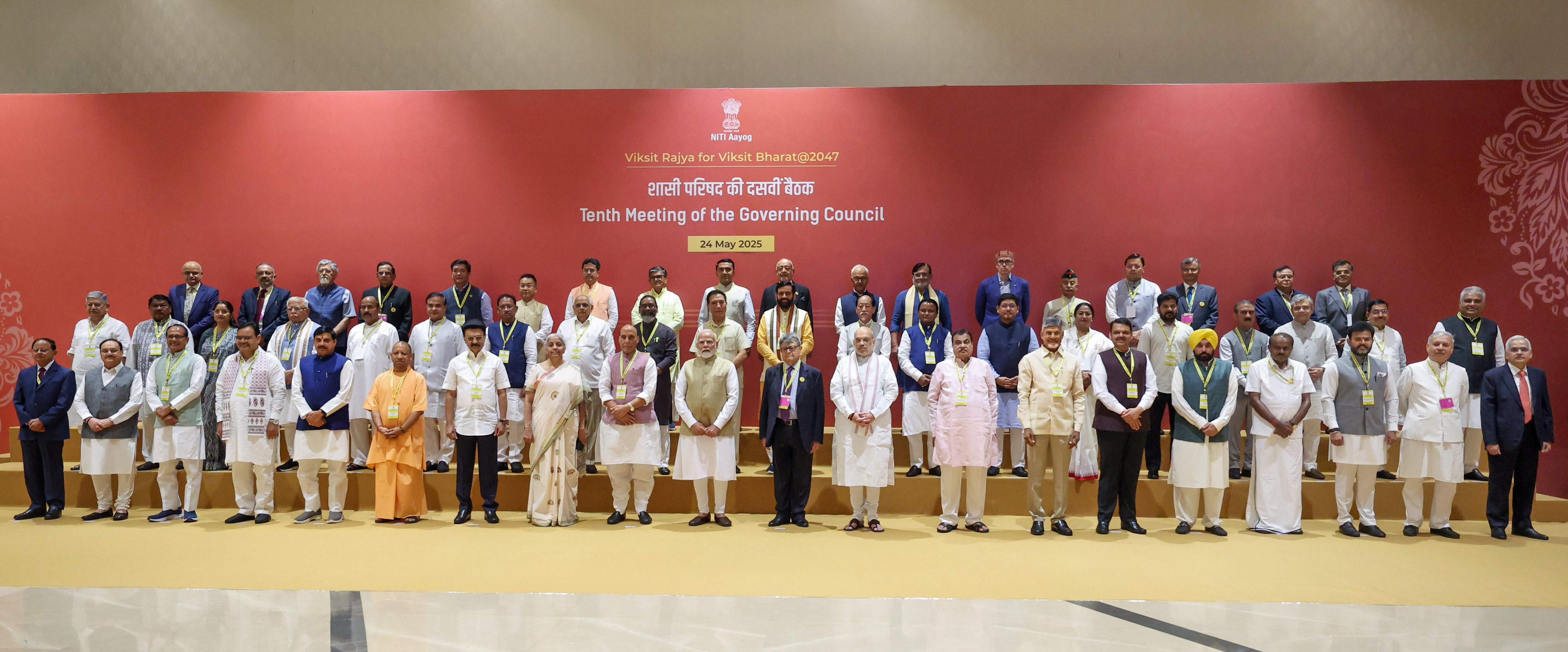
The theme of the Governing Council meeting was ‘Viksit Rajya for Viksit Bharat@2047’.
The Governing Council, Niti Aayog’s apex body, includes all state chief ministers, lieutenant governors of Union Territories, and several Union ministers. Prime Minister Modi is its chairperson.
PM Modi’s message on Operation Sindoor
According to NITI Aayog CEO BVR Subrahmanyam, everyone present at the meeting unanimously supported Operation Sindoor, undertaken by India to destroy terror infrastructure in Pakistan and Pakistan-occupied Kashmir.
A statement by the NITI Aayog said that Prime Minister Modi mentioned that Operation Sindoor should not be treated as a one-off initiative and that India should adopt a long-term approach.
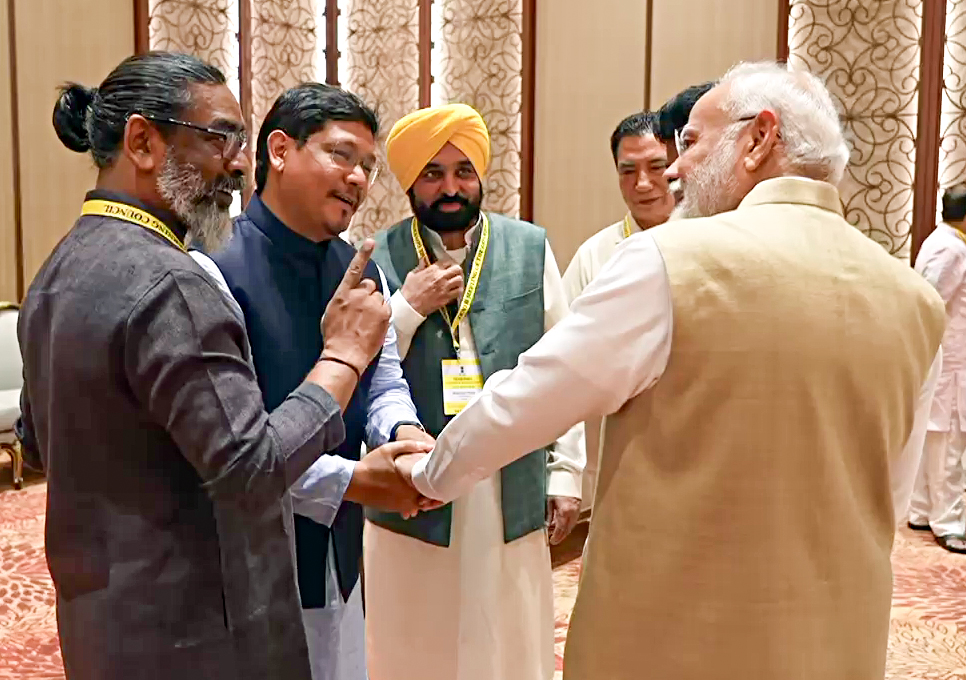
“Prime Minister mentioned that we must modernise our approach to civil preparedness. He said that the recent mock drills have reignited our attention to civil defence states should institutionalize Civil Defence preparedness,” the statement said.
Also Read | CMs ‘unanimously’ appreciated Operation Sindoor, congratulated armed forces and PM Modi: Rekha Gupta
“The CMs and LGs praised Operation Sindoor for its precision and targeted strikes, which led to the destruction of terror infrastructure. In one voice, they praised PM’s leadership and the valour of the Armed Forces,” it added.
Bihar, Bengal and others skipped meet
Briefing reporters about the NITI Aayog meeting, CEO BVR Subrahmanyam said that 31 states and Union Territories attended out of the 36.
The states which did not attend the meeting were Karnataka, Kerala, West Bengal, Bihar and Puducherry, he said, adding the 10th meeting of the Council saw maximum attendance.
Subrahmanyam also added that those who could not make it had prior commitments and informed the Council.
What Opposition CMs said during the meeting
During the meeting on Saturday, Telangana CM A Revanth Reddy called on Prime Minister Narendra Modi and sought approval for the Hyderabad Metro Rail Phase-II project worth ₹24,269 crore and official recognition of the Hyderabad-Bangalore defence manufacturing corridor, according to PTI news agency.
Himachal Pradesh CM Sukhvinder Singh Sukhu urged the government that special needs of hill states should be taken into account and demanded that the pending funds of the state be released.
“If the long-pending dues were released by the Centre well in time, Himachal Pradesh will itself become self-reliant,” Sukhu said, according to PTI.
Jharkhand chief minister Hemant Soren called for a provision in the Coal Bearing Areas (Acquisition and Development) Act, commonly known as the CBA Act, requiring companies to return land to the state government after mining activities.
Speaking at the NITI Aayog Governing Council meeting, he also demanded the release of ₹1.40 lakh crore allegedly owed by mining companies.
Meanwhile, Tamil Nadu CM MK Stalin urged the Central government to disburse ₹2,200 crore funds under the Samagra Shiksha Abhiyan (SSA) due for the state.
Stalin also sought to increase the state’s share in central taxes to 50 per cent and underscored the necessity for a dedicated urban transformation mission in the state.












